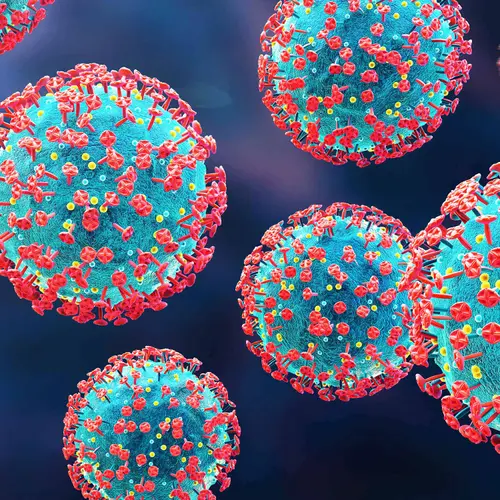Even though gay men are often seen as the public face of HIV, it’s possible for a woman to spread HIV to another woman during sex. It is considered rare, but one of the earliest confirmed cases of female-to-female infection was reported in 2012 in Houston.
Since then, it’s estimated women account for roughly 18% of the 1.2 million Americans living with HIV. Women get HIV from having sex with men, through IV drug use, and other causes. But you can also get it through sex with women.
If you already are HIV-positive, there are steps you can take to prevent your partner or partners from becoming infected while also reducing your chances of becoming ill.
Black and Latina women have higher rates of HIV infection than white women. Asian and Indigenous Americans reported the lowest levels of new and existing cases. A breakdown of about 248,000 adult and adolescent women living with HIV shows that:
- 57 percent are Black
- 21 percent are Latina
- 16 percent are white
- 5 percent are multiracial
- 1 percent are Asian
- Less than 1 percent are Indigenous
Researchers say the root cause of these differences are social roadblocks including racism, discrimination, and HIV stigma. These issues can affect whether or not you ask for and receive proper HIV testing, treatment, and other prevention services.
Stigma surrounding sexual identity can also contribute to how you respond to treatment and prevention options. “Women who have sex with women” is simply a term used to identify a segment of people with specific health care needs. Some women still have sex with men, even though their primary sexual partners are women. Sexual identity doesn’t always match sexual behavior.
What Are Risk Factors for Acquiring HIV?
Sexual practices. You are more likely to get HIV during unprotected vaginal or anal sex. It is transmitted through sexual contact with fluids like:
- Blood (from a cut, open sore, or menstrual cycle)
- Semen
- Vaginal secretionsHaving multiple sex partners can put you at risk.
Sharing needles. Intravenous (IV) drug use – injecting drugs with a needle – increases your chances of HIV exposure if you share needles with others.
Unclean sex toys. Dildos, vibrators, and other items that are used during sex should be washed before and after use between partners. Be careful with them so they don’t cut your skin and cause you or your partner to bleed.
Mental health. Women who have depression, anxiety, or posttraumatic stress disorder may be more likely to acquire HIV, and once infected, they are less likely to get HIV care and keep up with it.
Existing STDs. If you’ve been diagnosed or treated for chlamydia, gonorrhea, or syphilis, the likelihood of getting HIV – or passing it to your partner – is greater than in someone who doesn’t have these sexually transmitted diseases.
Intimate partner violence. Women who experience physical, emotional, or sexual violence may be forced to have sex without a condom. Constant stress brought on by your partner’s abuse may lead you to become involved in other risky behaviors that make you vulnerable to getting the virus. You have the right to refuse sex, to consent to have sex with women or men, and to have safer sex.
Ignorance. If you’ve never taken an HIV test, chances are you don’t know your status. This means you can’t:
- Connect with health care providers
- Start a treatment plan
- Stop spreading the illness to others
Scheduling an HIV test with your doctor or local health department can put your mind at ease. A rapid HIV test will typically take about 30 minutes. Testing is usually done with blood from a finger prick or through an oral swab. Learn how the disease is spread.
What Is Safer Sex?
Safer sex is when there is no exchange of bodily fluids during foreplay, intercourse, or fondling. No manufactured barrier is 100% effective at preventing leakage. But condoms, dental dams, and gloves do work well. By making sure your partner’s vaginal secretions, blood, or breast milk do not enter your mouth, vagina, or cuts, you’re practicing habits that can keep you healthy.
HIV Prevention Toolbox
Pre-exposure prophylaxis (PrEP). This medication can be taken before exposure. It blocks the virus from making copies of itself after you've been exposed.
Know your body and your partner’s, too. Take a good look for any bumps, sores, rashes, or cuts you may have. Be mindful of what is normal for you and your partner. If you see or feel any changes to your skin, consult your doctor.
Get regular Pap tests, pelvic exams, and testing for sexually transmitted diseases. If you don’t have employer-sponsored health insurance, your community may offer free mobile clinics or other wellness resources that work within your budget based on a sliding-fee scale.
Consider other ways to express love, romance, and physical intimacy other than sex. You also may think about avoiding using drugs, alcohol, or other mood-altering substances that may affect your judgment.
Have a discussion with your doctor about available antiviral medications used to treat and prevent HIV. If you’re a new or expectant mother living with the illness, this may help reduce the risk of passing it on to your baby.

